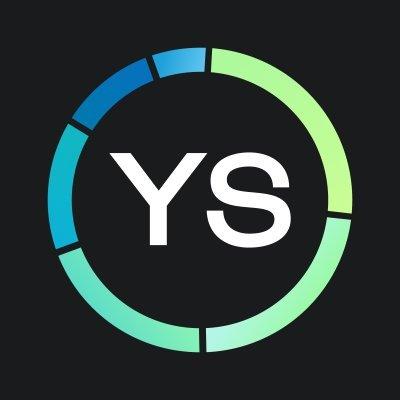Invest in private market alternatives
Invest in startups
Moderate Risk
3/5
Yieldstreet investments, focused on high-yield, specialty lending, carry inherent risks higher than traditional investments, primarily due to the potential for borrower default.
High Risk
4/5
Investing on Republic involves significant risks such as the potential total loss of investment, illiquidity, long-term commitment without guaranteed returns, risk of dilution, limited information on investments, and possible impacts from regulatory changes.
Minimum Liquidity
1/5
Yieldstreet's investments are generally less liquid, meaning they cannot be quickly sold for cash. These private market alternatives often require longer holding periods.
Minimum Liquidity
1/5
Investments on Republic are generally illiquid, meaning it may be difficult to sell or convert them into cash quickly.
Receive new reviews from Fintorial
Moderate Return
9.6 %
The expected net annualized return (IRR) for investors on Yieldstreet is 9.6%.
Not Predictable Return
N/P
Returns on Republic depend on the success of invested projects, companies, or funds, with potential payouts varying by investment terms.
Short-term Investment
6+ months
Yieldstreet's investments span time horizons from as brief as 6 months to as long as 5 years.
Long-term Investment
3-10 years
Investments on Republic typically have a long-term horizon, often requiring several years to over a decade before potential returns are realized.
Who can invest
United States
Yieldstreet is open to U.S. persons with a valid TIN, U.S. bank account, and U.S. mailing address. Non-accredited investors can access the Alternative Income Fund, while single asset investments require accredited investor status verification.
Who can invest
International
Anyone 18 or older can invest on Republic, with specific eligibility and investment limits varying by campaign. International investors can participate in many offerings, subject to local laws and specific campaign terms.
Moderate Volatility
3/5
Assets on Yieldstreet, being alternative investments, often show different volatility compared to traditional markets, potentially offering less correlation with broad market swings.
Moderate Volatility
3/5
Assets on Republic, like startups and private ventures, exhibit high volatility due to factors like market sentiment, regulatory changes, and business uncertainties. Valuation changes can be sudden and significant, reflecting the inherent risks and potential rewards of these types of investments.
Regulation and audits
SEC Regulated
Yieldstreet is regulated and undergoes regular audits for compliance. Its partnership with Synapse Brokerage LLC, an SEC-registered broker-dealer and FINRA and SIPC member, ensures adherence to strict financial regulations.
Regulation and audits
SEC Regulated
Republic operates under SEC regulations like Reg CF, Reg A+, and Reg D, ensuring transparency and investor protection. Companies on Republic must adhere to disclosure and, in some cases, undergo financial audits or reviews.
Insurance
Yes
Funds in the Yieldstreet Wallet are insured up to $250,000 by the FDIC, with deposits between $250,001 and $1 million spread across multiple FDIC-insured banks for extended coverage.
Insurance
No
Investments on Republic are not covered by traditional insurances or state guarantees like FDIC protection.
Payouts
Dividends
Yieldstreet offers varied dividend or interest payment structures: fixed income investments provide monthly payments at a target yield, diversified portfolios offer quarterly target yields, and art investments yield returns upon sale, all subject to specific terms and potential annualized net returns.
Payouts
No Recurring Payouts
Dividends on Republic are not standard across all investments and depend on the specific agreement with each company. Some investments may offer dividends through revenue-sharing arrangements, but many startups prioritize reinvestment over distributing earnings.
Withdrawals
Investors on Yieldstreet receive distributions directly into their Yieldstreet Wallet and can withdraw these funds to their bank account as desired.
Withdrawals
On Republic, returns mainly come from liquidity events like acquisitions or IPOs, but these are uncertain and can take years. Selling shares directly is typically not possible within the first year due to federal restrictions, with few exceptions. Even after this period, the resale market is limited and subject to legal considerations.
Extra Fees
Yes
Yieldstreet's fees include a range from 0% to 2.5% annual management fees, structured notes incur a 1.25% annual management fee plus a $150 annual fund expense, the Yieldstreet Alternative Income Fund charges a 1.0% annual management fee and up to a 0.5% annual administrative expense.
Extra Fees
Yes
Republic charges an administrative fee for investment commitments, typically 2%, with a minimum of $5 and a maximum of $300, varying by offering. This fee is refunded if an offering is canceled or withdrawn but not if the investor cancels their commitment.
Taxes
Tax Form
Yieldstreet issues either a K-1 or 1099 form for tax purposes, based on the legal structure of the investment, with details provided on the offering page and in downloadable documents when new offerings are launched.
Taxes
Annual Statement
Republic does not provide tax documents or specific tax guidance for investments. Tax implications, such as for Crowd SAFE and Token DPA investments, depend on the investment's nature and liquidity events.

